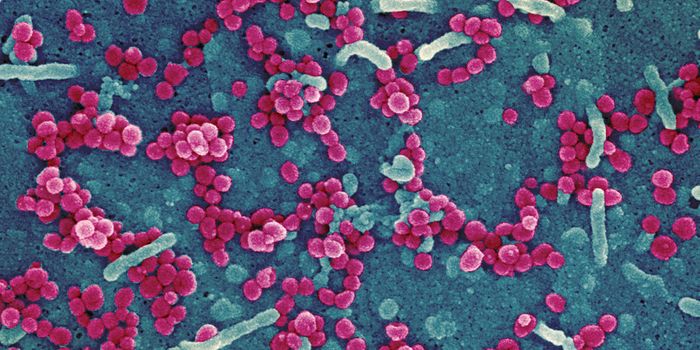A new treatment for the selective targeting of ovarian cancer cells has been adopted from chimeric antigen receptor (CAR) T cell technology, thanks to scientists from The Wistar Institute in Philadelphia, Pennsylvania.
Instead of targeting antibody fragments, the technique used in CAR T cell technology, the new method targets a hormone whose expression is unique to ovarian cells. The receptor-protein is expressed on the surface of two of the most aggressive types of ovarian cancer: clear cell and mucinous ovarian tumors.

Credit: ovariancancerday.org
“Ideally, we’d like to see this technology used after initial treatment with surgery and chemotherapy,” said postdoctoral fellow and first author of the study Alfredo Perales-Puchalt, MD, PhD. The new treatment is uniquely non-invasive and non-toxic due to its specificity to ovarian cells, leaving the rest of the body’s cells unaffected.
In their study of mice with ovarian cancer, The Wistar Institute scientists found the receptor-protein, follicle-stimulating hormone receptor (FSHR), expressed on the surface of about 70 percent of cell ovarian carcinomas, 67 percent of mucinous ovarian carcinomas, and 33 percent of of clear cell ovarian carcinomas. By developing T cells designed to target cells expressing FSHR, the researchers uncovered a completely new way to selectively target different types of ovarian cancer with almost zero adverse effects. The Ovarian Cancer National Alliance predicts more than twenty thousand new cases of ovarian cancer will occur in 2016 in the United States, with more than fourteen thousand women dying of the disease.
CAR T cell technology also has scientists excited about the new possibilities of selectively targeting tumor cells, reducing the toxic side effects of many existing cancer treatments. However, CAR T cell technology is currently limited to B cell blood cancers, namely chronic lymphocytic leukemia. Evolving CAR T cell technology to what researchers are now calling “chimeric endocrine receptor-expression T cells (CER-T),” scientists are beginning the process of diversifying the original idea that inspired CAR T cell technology.
Researchers tested CER-T in immunodeficient mice, with the experimental T cells programmed to target ovarian cancer cells expressing FSHR with the full-length sequence of hormone. They had success in getting the mice to reject established tumors of human origin, and when tested in mice with normal, healthy immune systems, the researchers saw no negative side effects.
Scientists responsible for the study believe that this new therapy, in conjunction with surgery and chemotherapy, could help reduce the risk of cancer recurrence, which remains a major concern for patients fighting ovarian cancer.
The study was recently published in the journal
Clinical Cancer Research.
Sources:
The Wistar Institute,
Ovarian Cancer National Alliance









